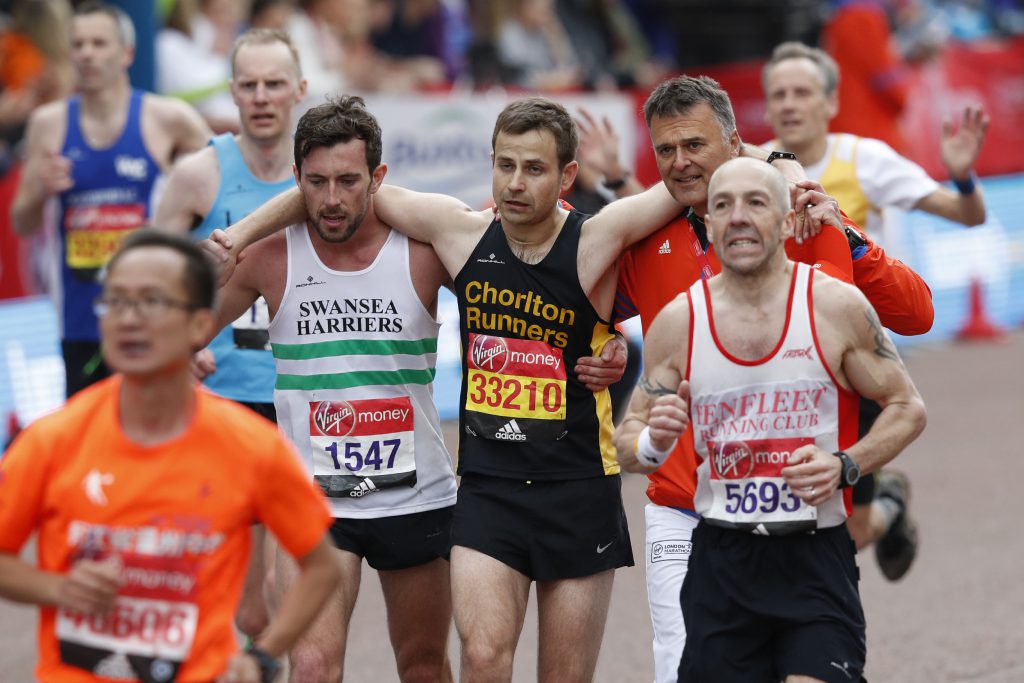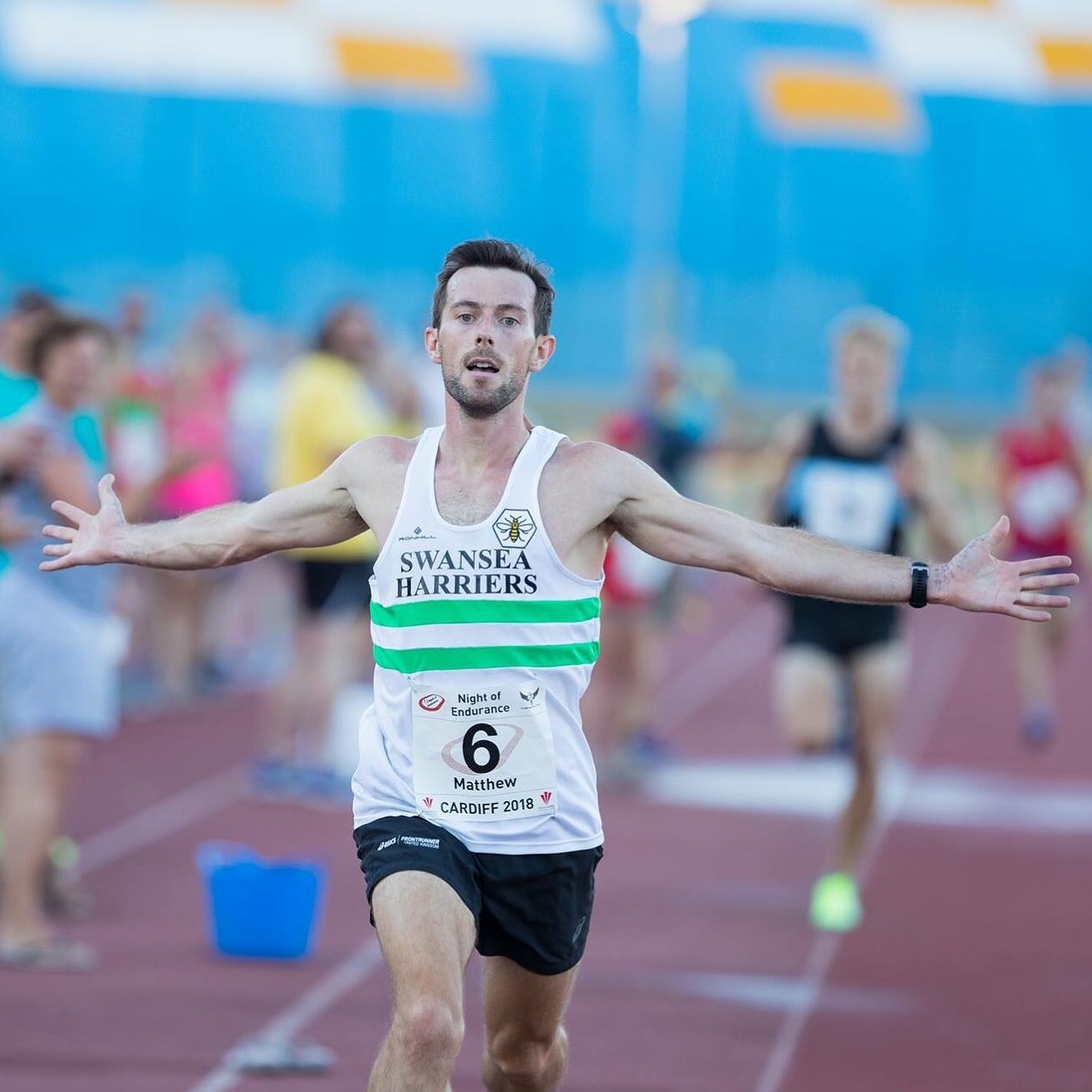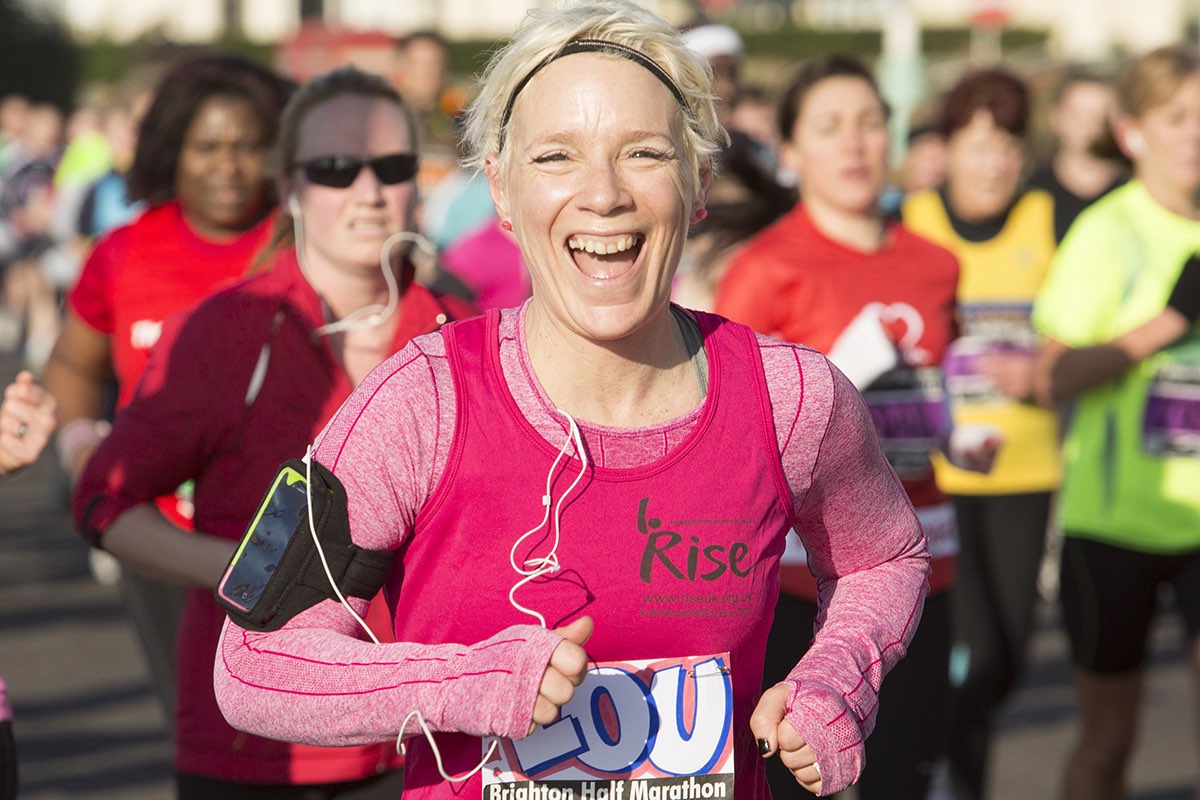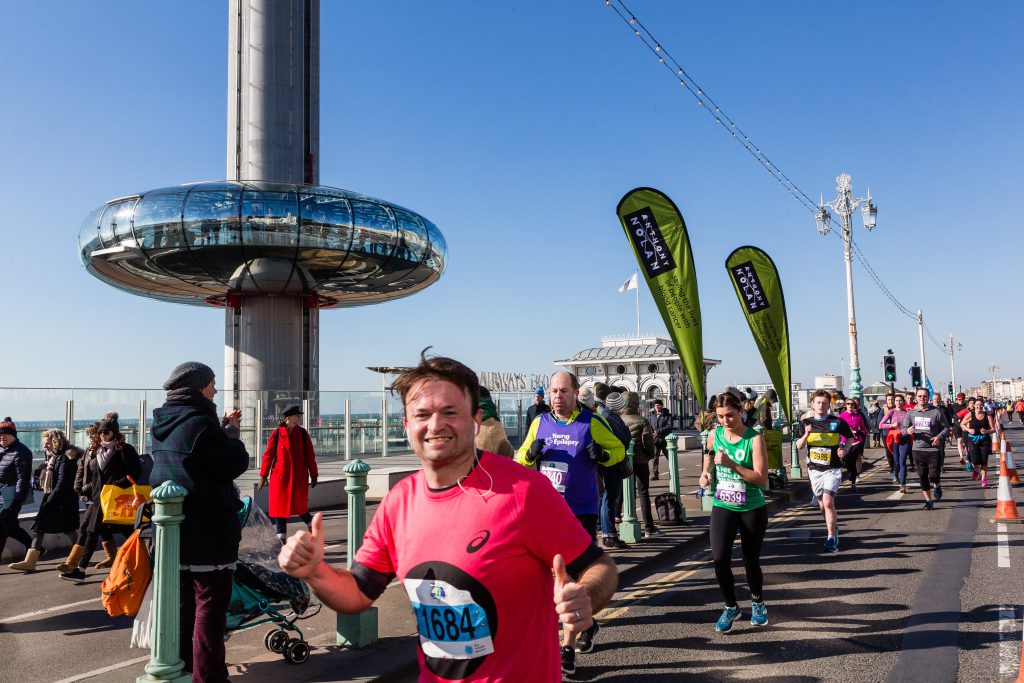Who is The Welsh Runner?
Name: Matt Rees
Age: 31
Occupation: Online Running Coach
Running Club: Swansea Harriers
Favourite Distance: Marathon
PBs: Marathon: 2:29:55 / Half Marathon: 1:09:19
Goals: Run for my country
How long have you been running?
I started running as a new year’s resolution in 2015 aged 27, so just over 4 years now. I have always been fit through playing sports and going to the gym, but I hated running. Building muscle with heavy weights was more important to me.
Why did you start running?
I have suffered badly with anxiety for many years. One of the main reasons I started running was to try and deal with some of the symptoms of anxiety. Running has helped enormously. It is not a cure but it is a great technique to help overcome some of the challenges of life. I could go on about the anxiety and periods of depression I have faced in the past, but I try to be a much more positive person now and look forward. I still suffer, but I have much better ways of handling it now, and running is major part of that. For years I cared way too much about what people thought of me in every aspect of my life. It would drive me crazy with worry. Now I focus on my most loved ones. They are the ones that matter.
When you first started running what did your training look like?
I thought I had a fairly good knowledge of health and fitness when I started running but I soon realised that I didn’t. Despite spending many hours in the gym and playing football on the weekends my first run was hard. I went slow but it was tough. My first training plan didn’t have any intervals, tempo runs, hills, sessions, or long runs. I didn’t run easy, and I didn’t run hard. I just went out and ran at an uncomfortable pace 3 times a week. I was getting fitter but not making the gains that can be achieved through clever training.
Why didn’t this work?
It’s not that it didn’t work. I was improving, but there was so much more to running than I initially realised. The main reason my progress was restricted was because there was no variation in my plan. I was doing the same thing for every run. I had lots of enthusiasm but very little knowledge on how to train effectively.
How long did it take you to research your own regime?
I did lots of reading and asked lots of questions. I come from an academic background and love research. I tried to soak up as much knowledge as possible. I didn’t get it right straight away. Lots of my training was through trial and error. I didn’t even realise the importance of long runs until 7 months after I had taken up running. I now see the long run as the most important run of my week. You can improve even when you don’t get it right. That’s what was happening with me. I was getting faster despite the flaws in my training. However, the more I learnt, the better I became. You can always learn something about training and your own body.
How was your training once you started to implement different types of runs?
Initially I found intervals and tempo runs difficult, but I started to improve much faster than I had been from just running the same pace every time. When I started to implement long runs in to my routine, my improvements grew even faster. My training plan started to incorporate hard sessions followed by easy days. It takes some getting used to but the rewards are worth the effort. Additionally, the variation keeps running fun. I think it is important to build these sessions on a strong foundation though. That’s where lots of runners go wrong. They neglect the base training.
Have you received much support from your clubs and family?
I joined Swansea Harriers after a few months of training on my own. I was initially apprehensive and unsure if I was good enough to join a club. However, I soon realised that the club included runners of all different abilities and ages. The club were massively supportive and I had finally found a group of people who weren’t bored by my desire to chat about running. Joining a club really helped my running education and gave me lots of opportunities that I was unaware of.
My family have been supportive, but initially they didn’t really understand my desire to run. I wasn’t a runner and a few months later I was racing and a member of a club. It took people a while to realise that running was not a fad, it was a part of my life that was there to stay. They are much more supportive now but I think they still struggle to come to terms with my commitment to running and the ambitious goals I have set myself.
Tell us about your London Marathon experience which lead to you receiving a Spirit of London Award?
I believe that helping David was the natural thing to do. When you see someone in distress, you don’t really think, you just act. I wanted to help him and make sure he finished the race which starts months before, when you start training. I was astonished by the public reaction and attention the moment received. It’s fantastic to have a positive running story and hopefully it highlights that within the running community there is so much camaraderie.

Matthew Rees (L) of Swansea Harriers helps David Wyeth (C) of Chorlton Runners reach the finish line during the London marathon on April 23, 2017 in London. / AFP PHOTO / Adrian DENNIS
What are your biggest running achievements?
I have won a number of races now. It seems crazy saying that. When I first started running I never thought I would be winning races, and yet 7 months later I won my first event, The Wales 10K in Tenby, on my birthday. That was a special day.
Since then I have gone on to win events including the Great Welsh Marathon, RnR Liverpool Half, and gold at the Welsh 10,000m Championships.
However, my favourite races are usually the races I don’t win. Don’t get me wrong I love winning, but I push myself more when there are faster competitors in the race. I get more satisfaction from really pushing my limits than winning a race. So, I really love the big events. Thousands of runners, a big build up and lots of the best runners. That’s normally when I PB.
What’s your most memorable running moment?
I have already mentioned the iconic moment with David so I will choose something different. I think in running it has to be crossing the finish line in my debut marathon in London. It was just such a huge moment of relief and satisfaction as I knew the suffering was over and all my hard work had come to fruition. I was really proud when I looked down at my watch and saw that I had run 2:29 on my first attempt. Not many people believed I would get near that time, but I knew how much preparation I had put in during the months before. I had huge amounts of self-belief going in to that race. It was an emotional moment.
What’s your favourite sayings?
I use lots of motivational sayings that I have heard but my favourite quote is from Bart Yasso of Runner’s World:
“I often hear someone say I’m not a real runner. We’re all runners, some just run faster than others. I never met a fake runner”– Bart Yasso.
For me this encapsulates running. Lots of people think they are not fast enough, but I think we are a community. We all go through the same things, no matter what pace you are running.
Another one I like is:
“I already know what giving up feels like. I want to see what happens if I don’t”
This one is a great mantra in a race when it hurts and your head is pleading with you to slow down.
Tell us how you use @thewelshrunner to inspire others?
I try to motivate others by sharing the ups and downs of my training on Instagram and YouTube. Most runners are going through the same things no matter what level you are, so I try to open up my training so others can learn and relate. I share tips and sessions that I use in my own training. I love the running community on social media and am inspired by all of the posts I see on a daily basis.






